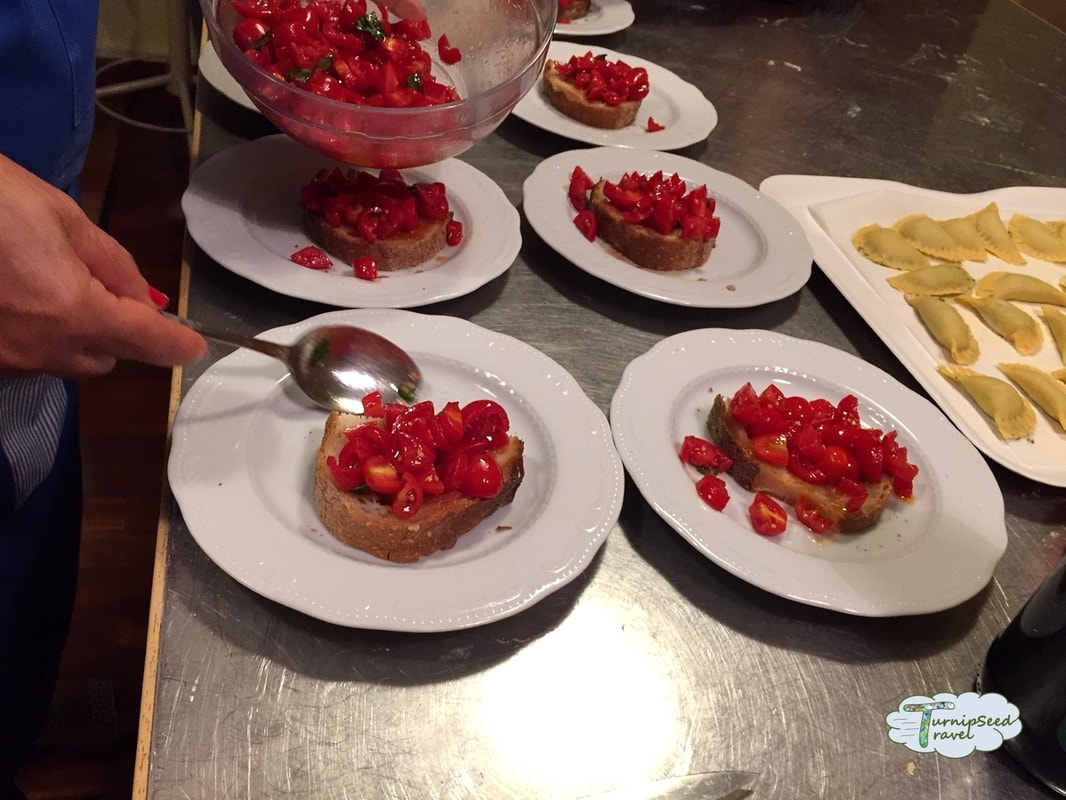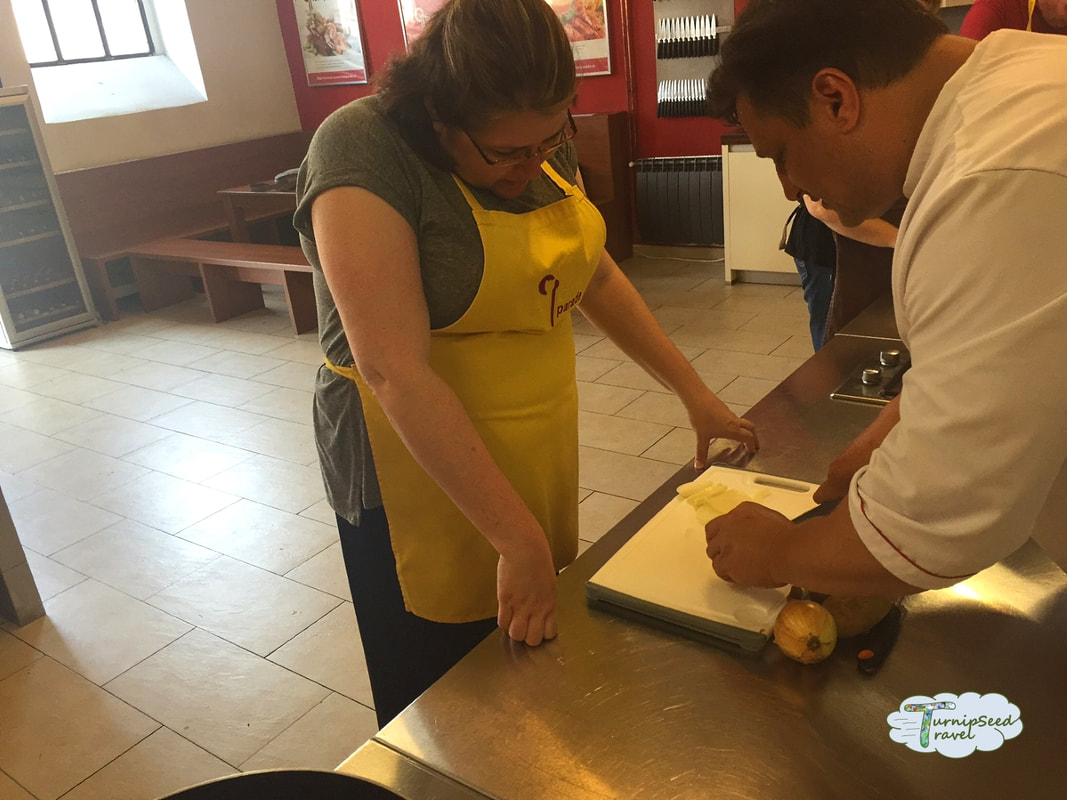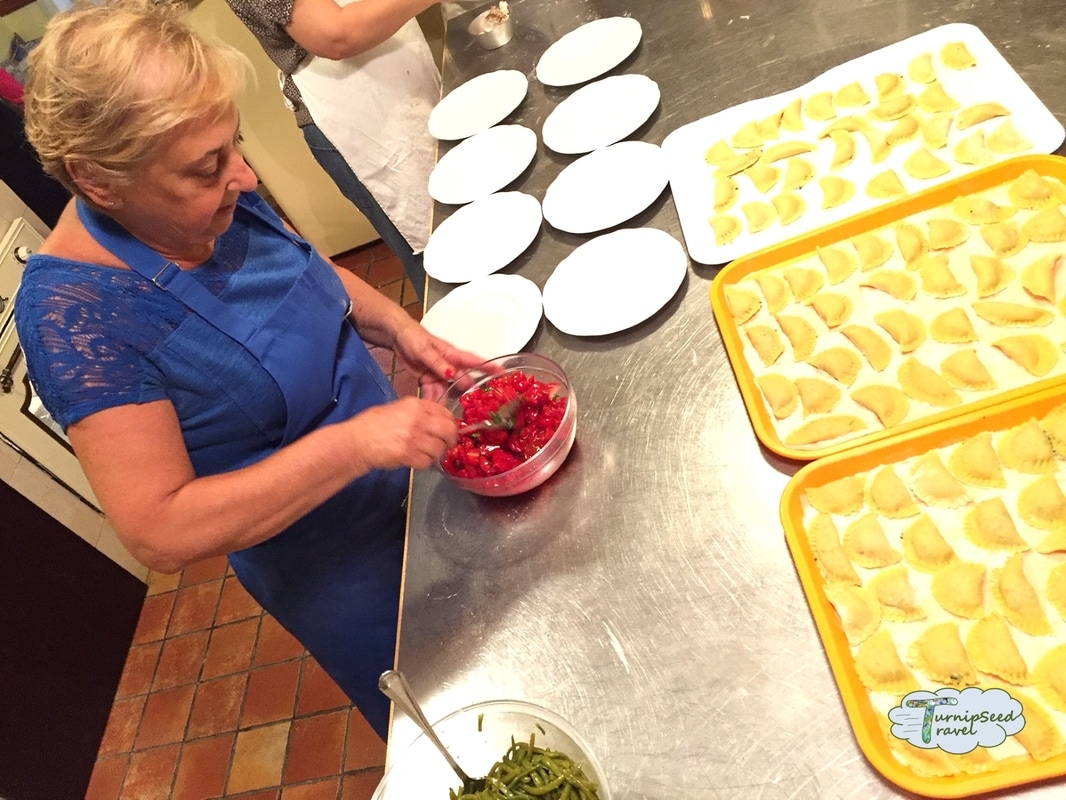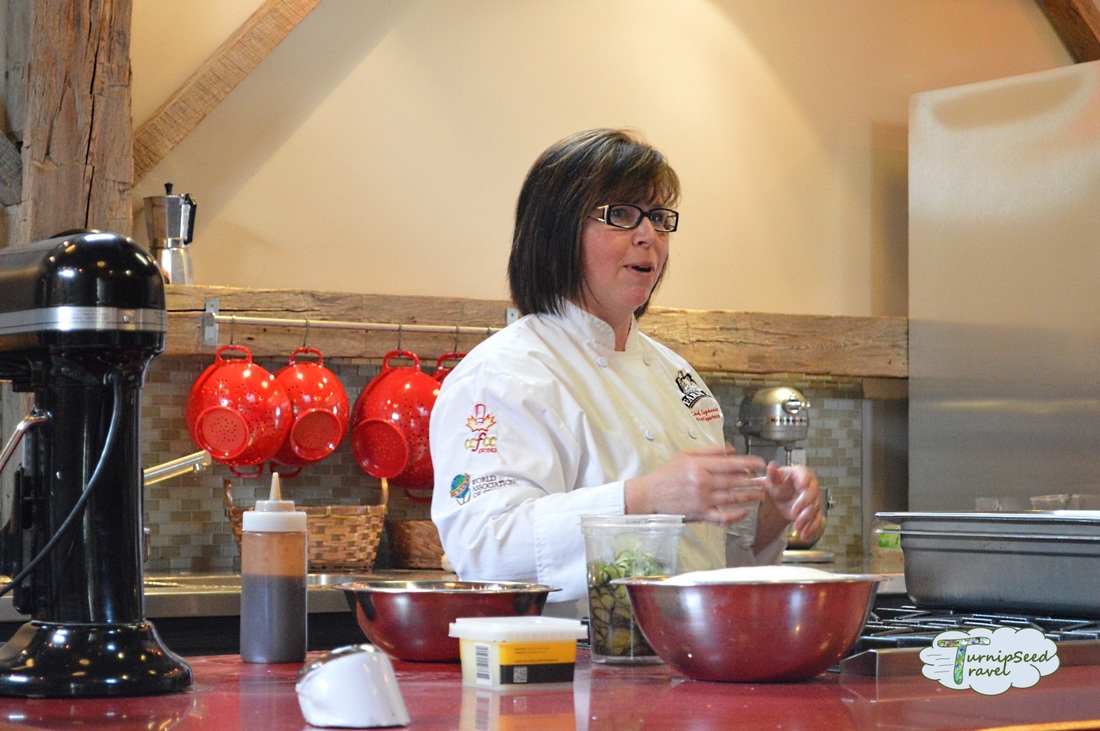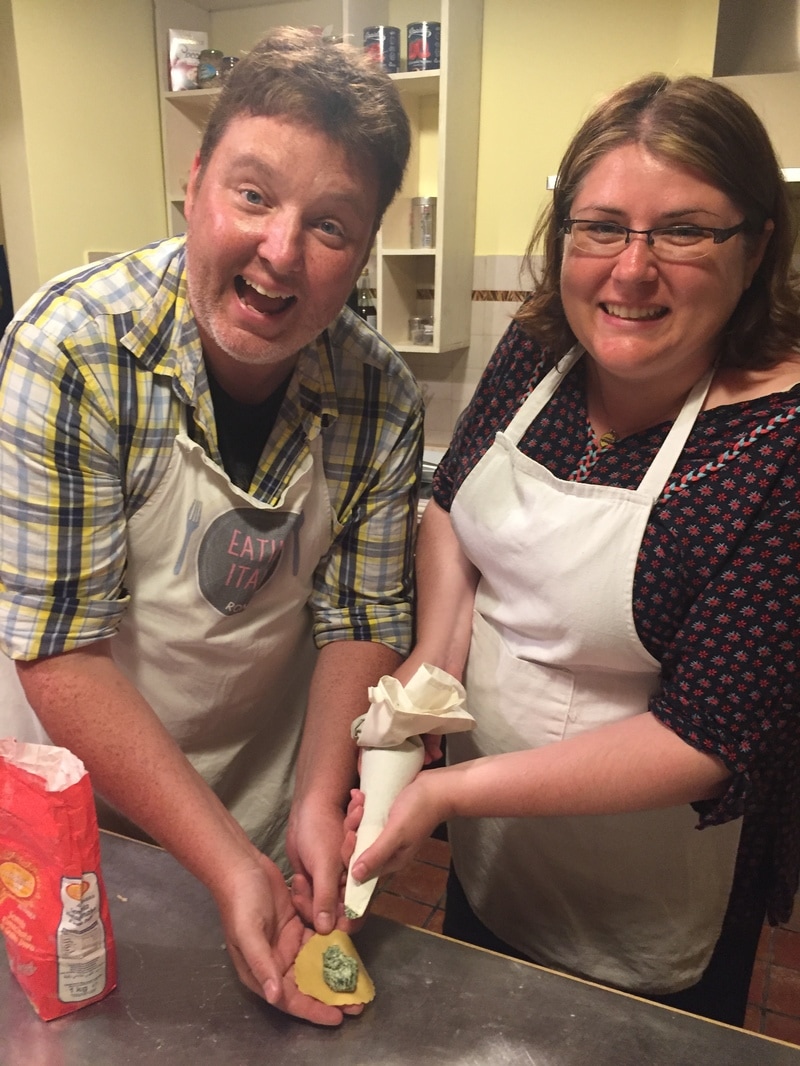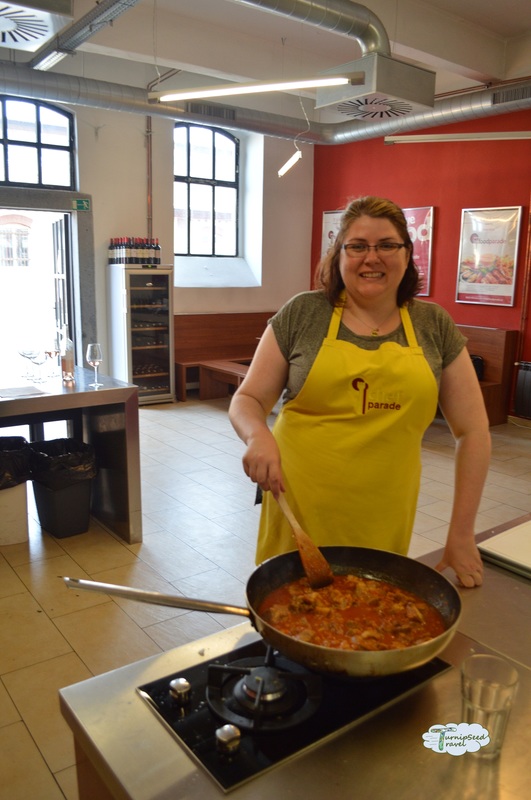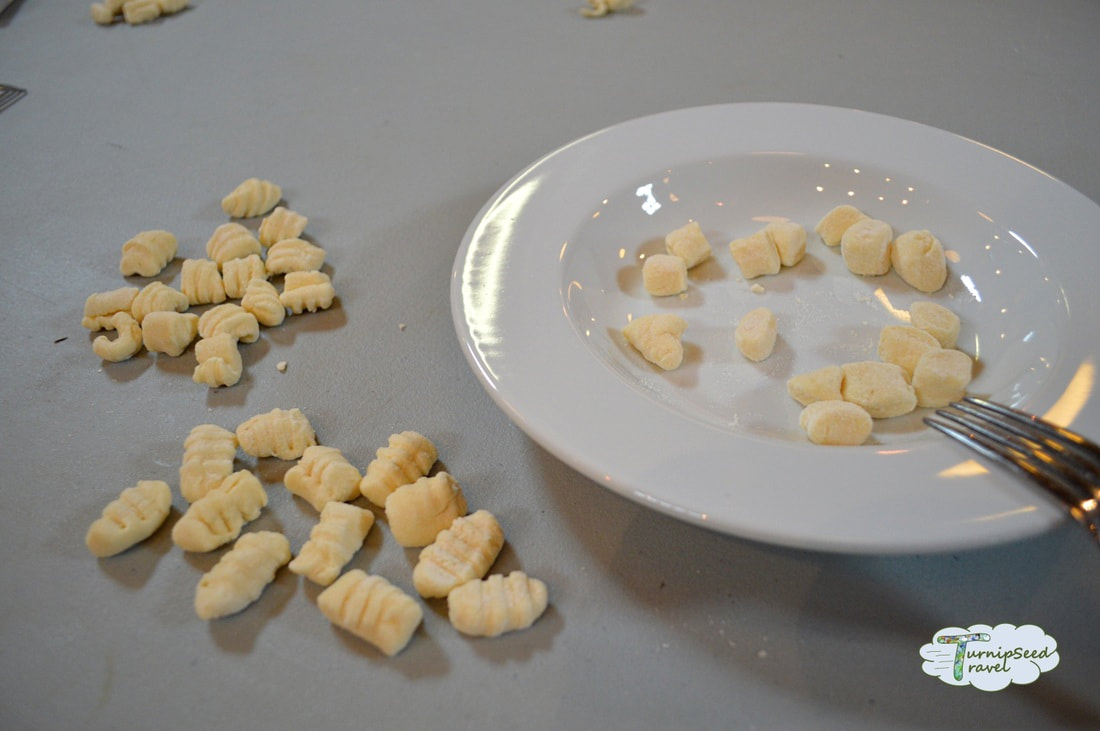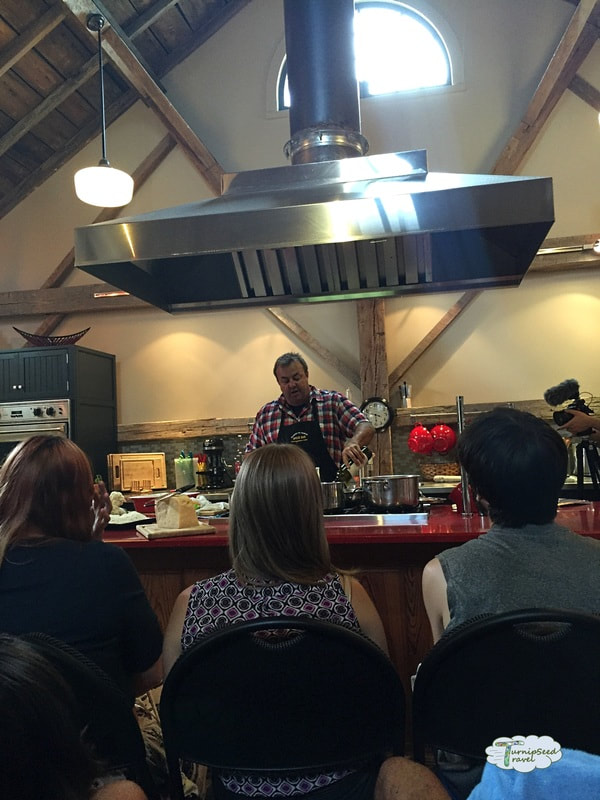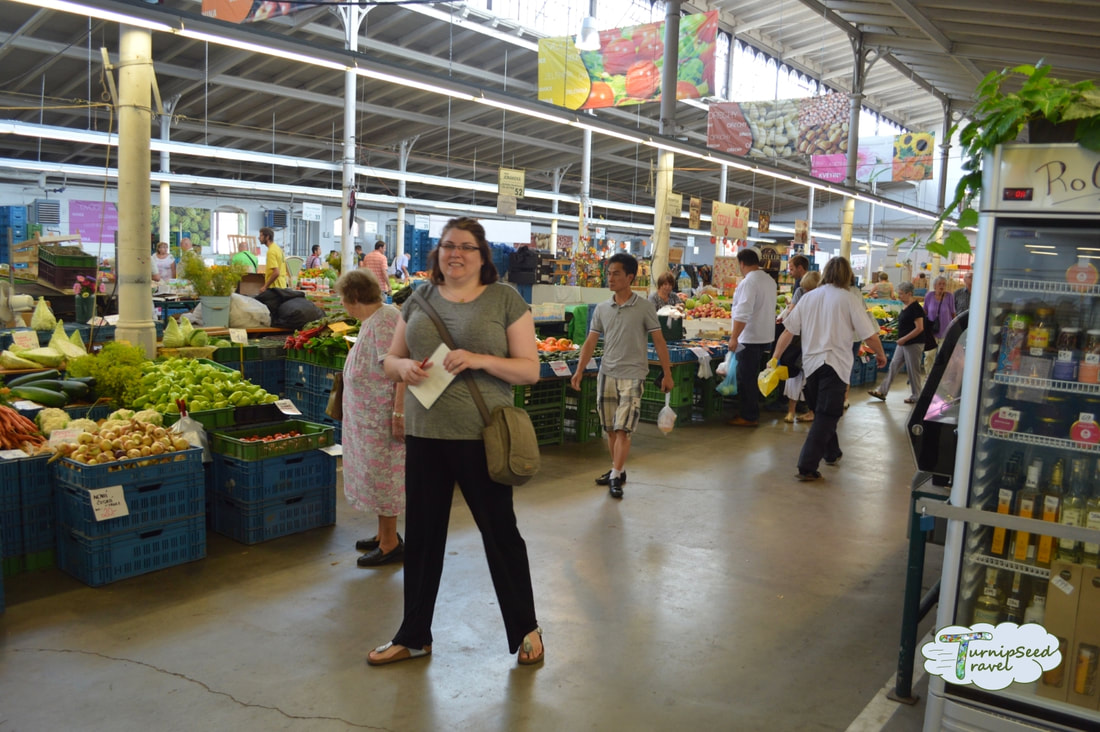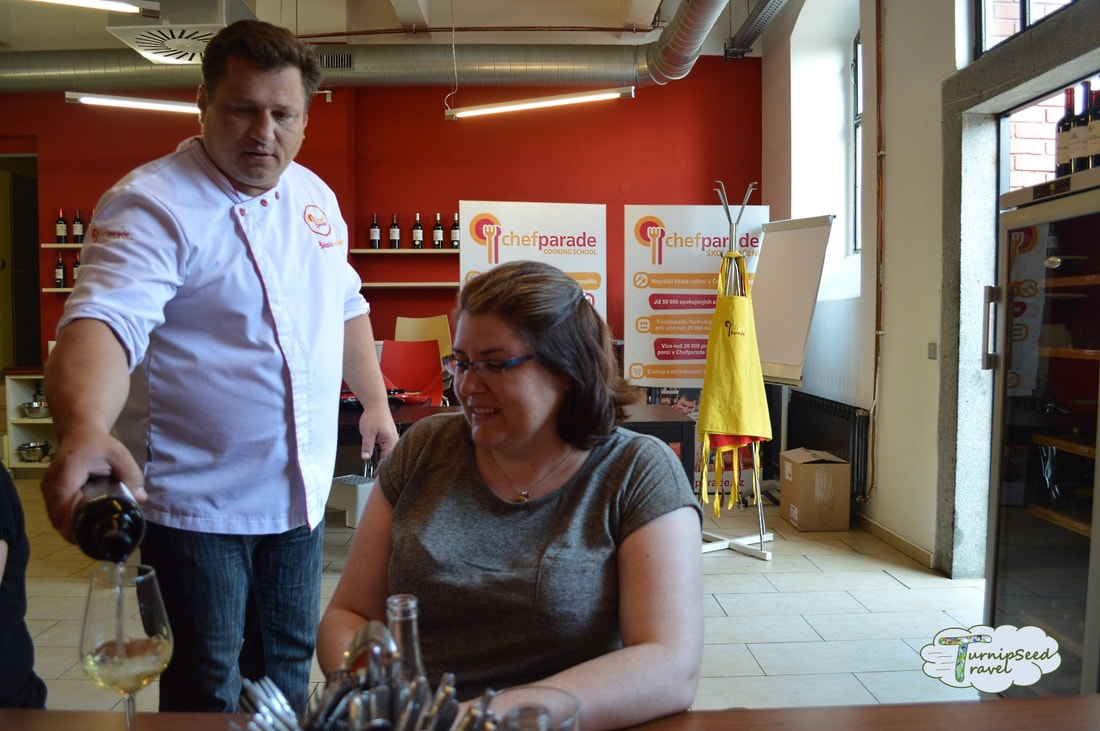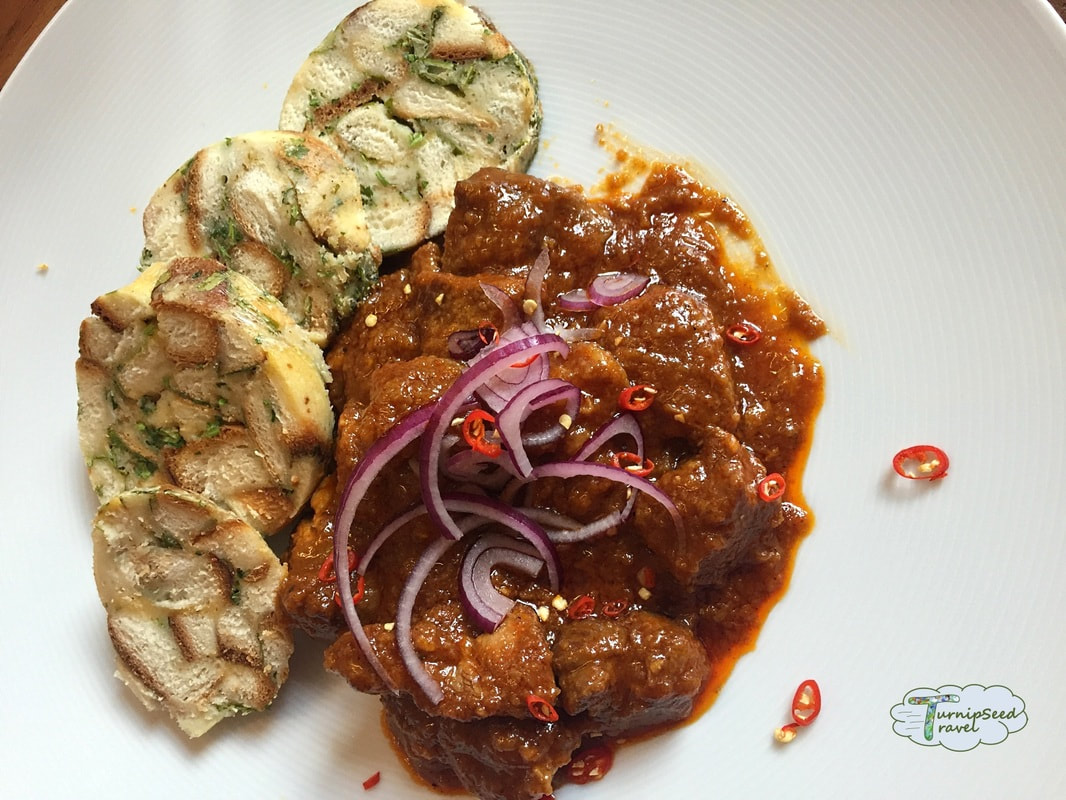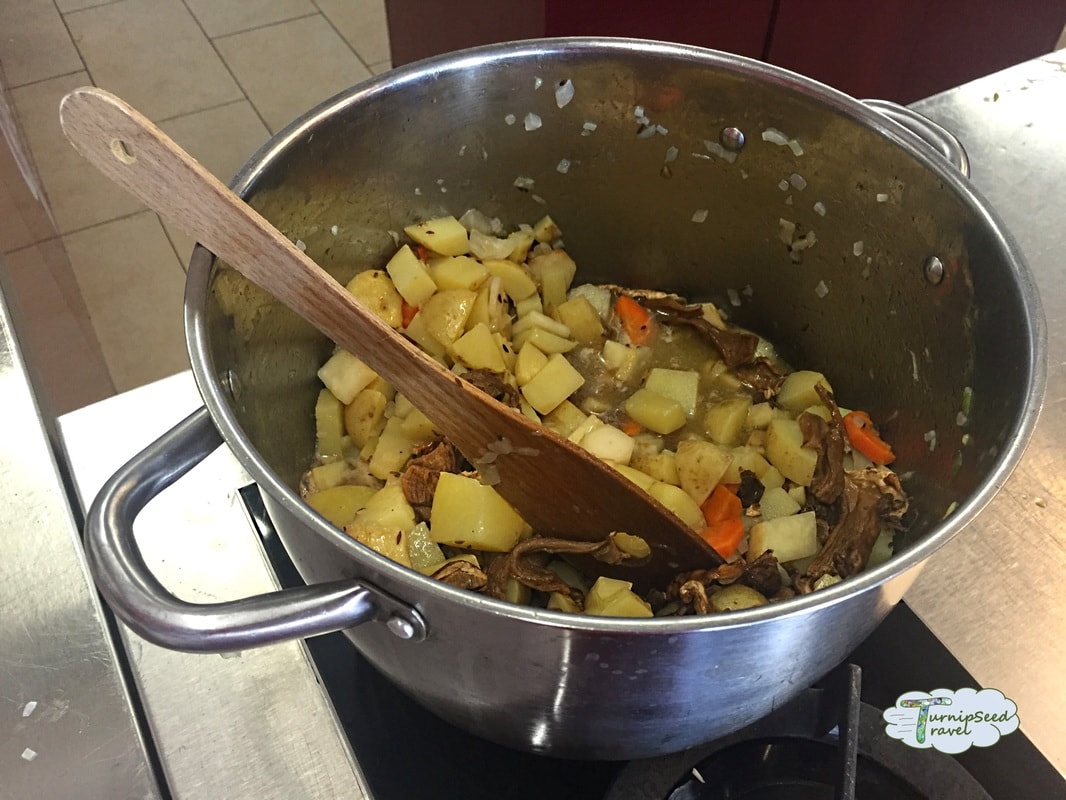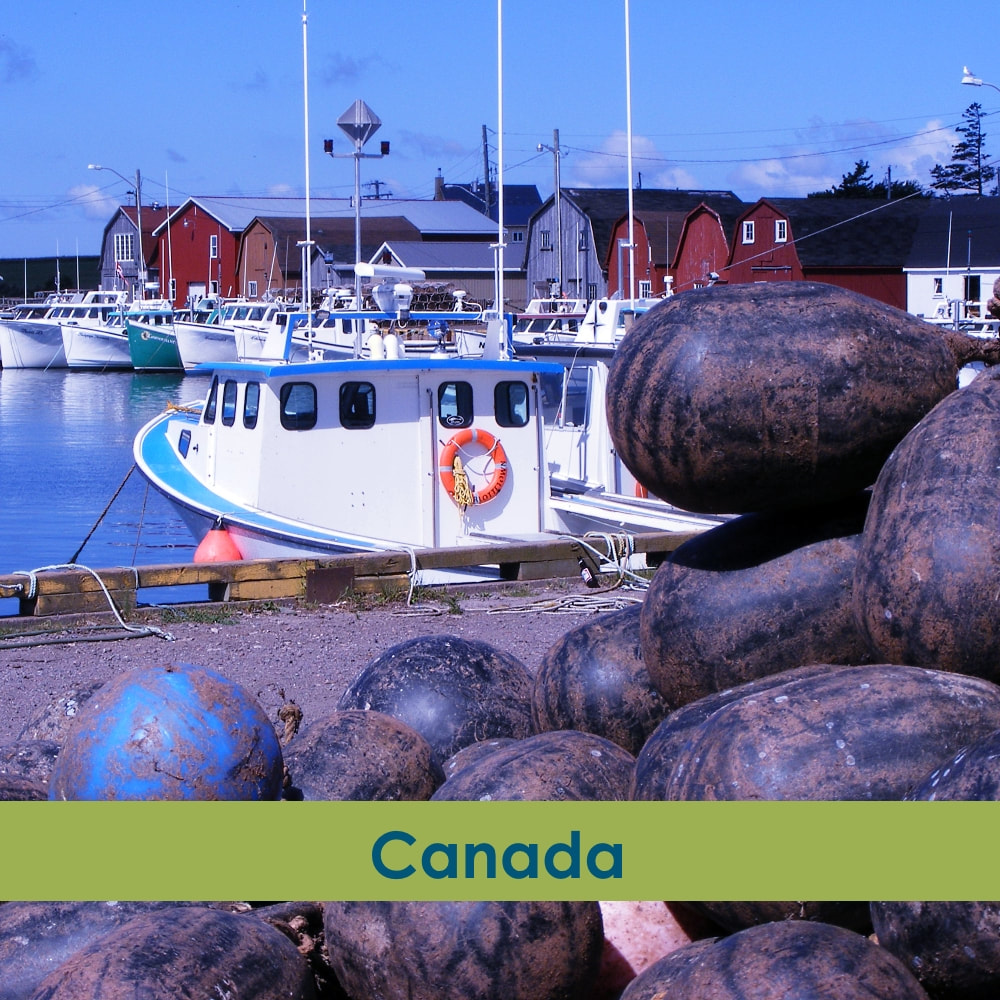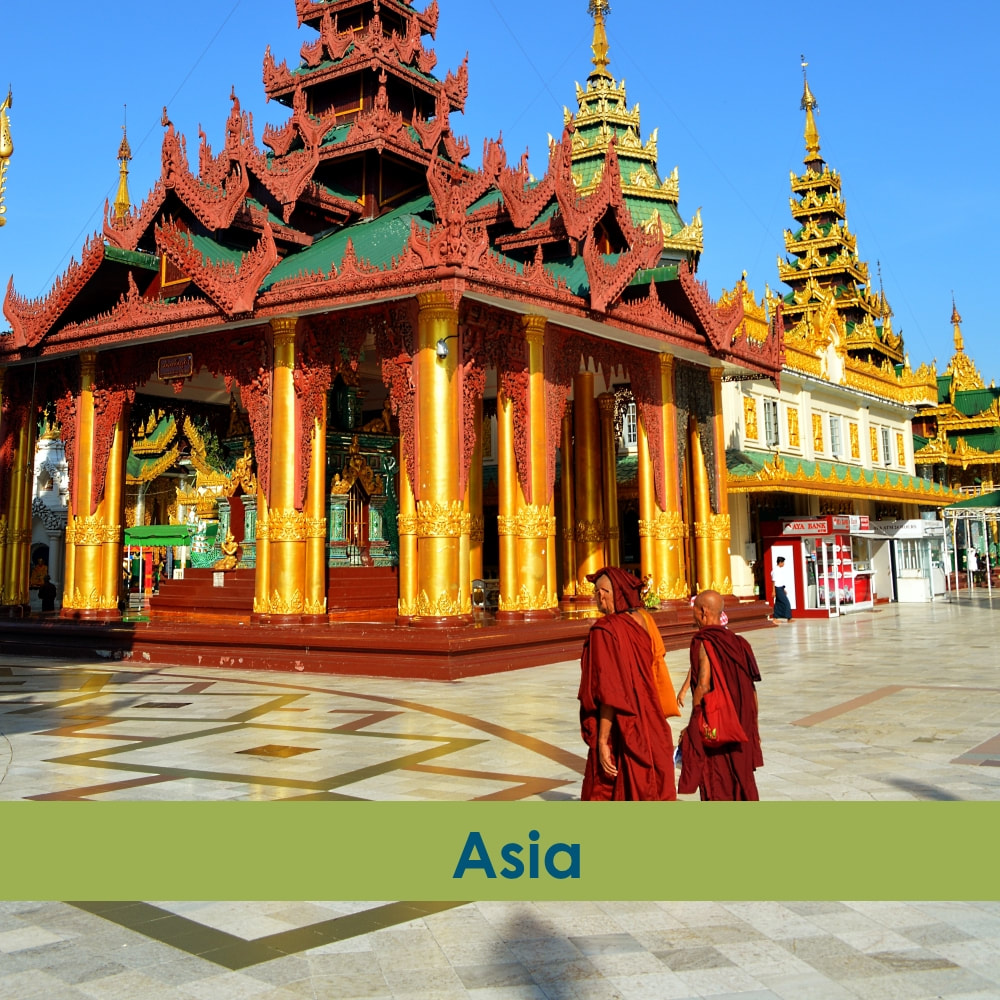Bon Appetit! Cooking classes around the world offer great meals and great memories. Here's what we look for to make sure we get great value as well.
We were sticky, sweaty, and we smelled distinctly of onions. Our feet were coated in a layer of fine dust and we had mysterious red splotches all over our shirts. We needed showers, we needed rest, and -truth be told - we probably needed to drink something other than wine. But we had the best morning imaginable!
We weren't participating in some kind of strange obstacle course or adventure excursion. No, Ryan and I were fresh from spending the morning at an incredible cooking class in Prague. The onion odor and red stains were the result of carefully (... or not so carefully....) stirring the base for a goulash and the dusty feet were courtesy of a market tour. And the wine, well...All in a day's work! Cooking classes around the world are our new favourite travel activity and we're not alone. Classes for non-chefs and travelers are popping up everywhere. We've never had a class we didn't absolutely love nor a meal that didn't leave us groaning with happy, overfull bellies. To ensure that your experience is just as great as ours, here's what you should look for in an overseas cooking class. Choosing a travel cooking class requires research
Participating in cooking classes around the world has sharpened our culinary skills, enhanced our cultural understanding, and has given us some truly spectacular meals. But not all "cooking classes" are equal. Some cooking classes are more like cooking demonstration - or maybe something in the middle. If student participation isn't clearly spelled out in the activity description - ask. Photos can be misleading.
Personally, I find the most rewarding classes are very "hands on", but I've had enjoyed wonderful demonstrations too. In tiny West Lorne, Ontario, I sat in and sampled as award winning chefs demonstrated complex recipes. The demonstrations were part of a larger event and it just wouldn't have been feasible to put on a full class. While you're in research mode, dig deep to find what exactly is included in, say, a 4 course meal. One of those "courses" may very well be a simple appetizer like crackers and cheese or bread and dip. And there's nothing wrong with that. You know how much I love cheese and bread! But it's not the same as learning to cook a brand new dish. At the same time, don't be dismayed if one of the dishes on your menu sounds very simple. Our cooking class in Prague taught us how to make homemade stock and our cooking class in Rome included a bruschetta lesson. In both cases, those simple dishes contained very valuable instructions that continue to influence our cooking to this day. If you want to combine cooking classes and travel, remember that size and environment matter for the best possible experience.
As with any travel activity, the size of the group and the structure of the activity matters. The smaller the cooking class, the better. We've done classes with 4 people and another with 8 - and that's plenty! It's not just about getting one on one time with the instructor. A small group makes for a fun environment and the chance to meet new friends. A fellow traveler in our Prague cooking class, for instance, gave me really helpful advice about our trip to Cape Cod. Thanks, Kelly!
We've done cooking classes in professional kitchens and we've also done cooking classes in modified apartments. Both were ideal settings for work and play. While I wouldn't dismiss a class held in a community center or an open air environment, make sure the amenities to match your expectations (like, say, access to washrooms and air conditioning!) Putting the pieces together: Communication and reviews
Normally I'm hesitant to rely heavily on online reviews. They have a tendency to attract bitter rants, not concrete information. But I've found online reviews helpful for assessing cooking classes. I'm curious about what the last dozen folks had to say. Did people find they got good value for their money? Did the class deliver as advertised? Were there any unexpected problems, like not having clear directions or surprise costs? You can pick up a lot of helpful information this way and get a good sense of value and satisfaction.
One thing I look for in reviews and on websites is if the company clearly talks about dietary restrictions. It's not always possible to accommodate restrictions but it IS possible to communicate clearly. At our cooking class in Rome, the interpreter double checked if there were any allergies even though we provided that information with registration. They even made a point of seeking Ryan out to confirm his shellfish allergy, though, with no shellfish on the menu, he had no concerns. That kind of thoroughness and attentiveness was very impressive. Good communication is a sign of a good class to come. For your last course: A few tips to get the best experience.
Have a very light meal or snack before your class. You definitely want to save lots of room to eat, drink, and be merry but you don't want to be cranky and hungry during introductions and food prep time.
Cooking classes are physical events! Wear comfortable, layered clothing and shoes that let you stir a hot pot, stroll around an outdoor market, and concentrate on rolling out pasta dough all during the same visit. If you have the opportunity to pay for an optional farmers market tour, I think it's worth it. As I mentioned in my quirky "penguins or no penguins" post, I first thought it was silly to pay to see a market. After all, it's something you can do for free! But it was a great way to enjoy a lot of small interactions with local residents and I certainly learned a lot. Cooking classes are popular items with third-party tour sellers and are sometimes combined with other tours and activities. Read the fine print to confirm what is and is not included. A city tour that includes a short cooking demonstration and tasting, followed by free time to explore a market, can be very enjoyable - but it's not the same as a comprehensive four hour class. If the cooking class program is the same by morning or by afternoon, I'd recommend choosing the later class. As my crafty fellow savers can deduce, a cooking class is a great substitute for buying a meal (and, in fact, it might be cheaper than some restaurants). It's usually easy to find inexpensive lunches around the world but dinners can be more challenging. So grab a sandwich for lunch and save the investment in a cooking class for when it can double as your evening meal. (Also, while I have no objection to drinking wine at 9:00 am - if your cooking class includes wine pairing you might enjoy it more later in the day.)
We can't wait to continue to slurp, stir, and saute our way around the world. Cooking classes are one of the most memorable, delicious, and delightful ways to discover new cities and we can't wait for the next ones!
If you enjoyed this recipe, you'll also like: The Recipe For A Great Time in Prague is at Chef Parade Roman Recipes: Cooking With Nonna In Rome Cooking Up The Second Best Pad Thai in Bangkok Comments are closed.
|
�
Recent Posts
Posts by Location
Post Categories
All
Posts by Date
June 2024
|
Disclaimers, Privacy, and Cookie Policy |
Top 100 Travel Influencer
As named by the Obama White House in 2014. |
© COPYRIGHT 2024. ALL RIGHTS RESERVED.
|


